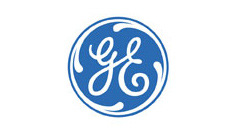General Electric
Professional Services 501+ employees Dec 10, 2024 4:20:55 PM Topgrading %

Jack Welch became CEO of General Electric and he was only able to increase GE's market capitalization from $13B to $39B in six years. He was frustrated by mis-hires and mis-promotions.
The percent of managers hired or promoted who turned out to be high performers was estimated to be 25% – a number that is unfortunately typical for most businesses, large and small, in all industries.
GE's Human Resources teams were tasked with finding a highly effective hiring approach, but none was found – until one HR leader read Topgrading.
"The Topgrading methods are the best tools in our arsenal for getting an in-depth understanding of high-potential managers."
- Bill Conaty, SVP Human Resources (retired)
Number of Employees : 300k
Industry : Multinational Conglomerate
Highlights :
- Topgrading methodology applied Tandem Topgrading Interview created and implemented for exponential improvement
- Improvement from 25% to over 80% high performers hired and promoted.
- Market cap improved from $39B to $570B
- GE became the most valuable company in the world.
- Though GE's stock declined after Welch left, Larry Culp was named CEO and the stock is roaring back. As CEO of Danaher, Culp embraced Topgrading and achieved spectacular results.
- GE’s organization culture improved with a Topgrading program to hold managers accountable for a higher rating in Emotional Intelligence.
Solution
Welch met Brad Smart and rolled out Topgrading at GE in 1987. Smart trained HR professionals to perform Topgrading interviews, and HR in turn trained managers throughout GE. Through this rollout, GE’s success hiring improved from 25% to 50%. Impressive, but Welch was still not satisfied. To improve Topgrading’s effectiveness, Smart created the Tandem Topgrading Interview, which became an integral part of the Topgrading methodology. With two interviewers, GE’s success in hiring high performers improved to over 80%.
In addition, Smart and other Topgrading professionals interviewed candidates alongside GE’s senior leaders to ensure the most thorough interviews possible. They also coached the existing executive team, which resulted in significant improvement.
Results
Executives coached by Topgrading improved their Emotional Intelligence, improving operating results overall.
In conjunction with GE’s talent improvement from 25% to over 80% A Players, the company’s market cap increased from $39B in 1987 to $572B in 2000 (before the recession).
Topgrading Emotional Intelligence Program
Challenge
Welch and Conaty, though highly satisfied with A Player hiring, were not satisfied with the organization culture. Topgrading coaching showed that with improvements in senior executives’ Emotional Intelligence, operating results improved.
Solution
Coaching for improved EI was turbo-boosted with Welch’s 2x2 model of achieving results and exhibiting GE values, and if a manager achieved targeted results but did not exhibit GE values, the manager would be terminated.
A key item in surveys of direct reports was “Treats people with respect.” On a 10-point scale, 7 was the minimum acceptable rating for this competency. After one year, during which time extensive coaching was implemented, several executives were terminated. This sent a strong message across GE’s 30,000 managers: consistently treat everyone with respect or find another job.
Results
Welch chose not to release the results but said many times, and in many ways, that the improvement in EI was very dramatic and so widespread that subsequently very few managers failed to exhibit the necessary level of EI.
